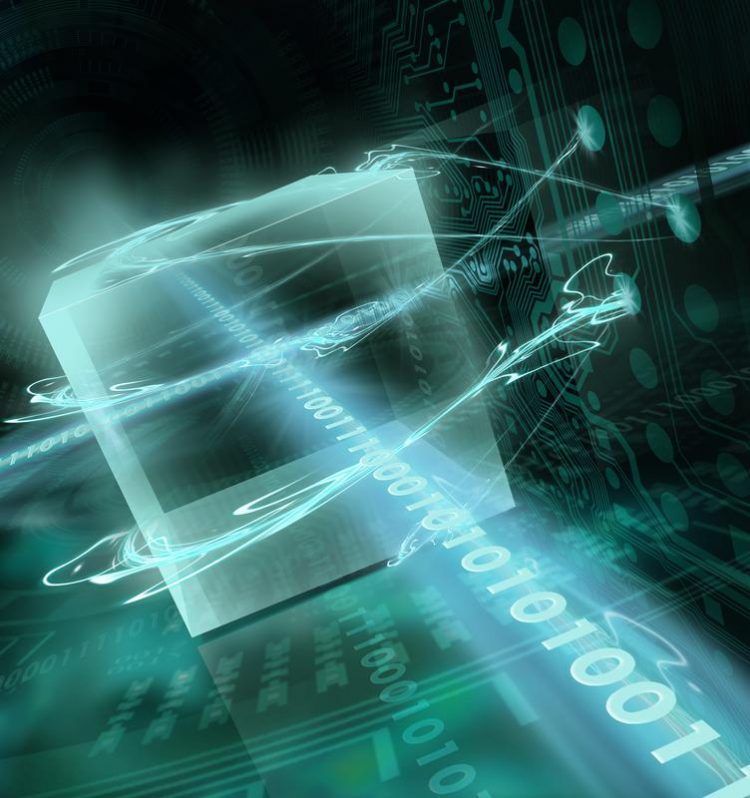Artificial agent designs quantum experiments

The artificial agent uses optical elements such as this beam splitter to construct new and optimized experiments. Harald Ritsch
We carry smartphones in our pockets, the streets are dotted with semi-autonomous cars, but in the research laboratory experiments are still being designed by people. However, this could change soon. In the group of Innsbruck physicist Hans Briegel, researchers broach the question to what extent machines can carry out research autonomously.
For this purpose, they use the projective simulation model for artificial intelligence, developed by the group, to enable a machine to learn and act creatively. The memory of this autonomous machine stores many individual fragments of experience, which are networked together. The machine builds up and adapts its memories while learning from both successful and unsuccessful experience.
Now, the scientists from Innsbruck have teamed up Viennese colleagues in the group of Anton Zeilinger, who previously demonstrated the usefulness of automated procedures in the design of quantum experiments with a search algorithm called Melvin. Some of these computer-inspired experiments have already been performed in the lab of Zeilinger.
Together, the physicists have now understood that quantum experiments are an ideal environment to test the applicability of AI to research. Therefore, they used the projective simulation model to investigate the potential of artificial learning agents in this test-bed. In a paper published in the Proceedings of the National Academy of Sciences, the researchers now present their first results.
Optimized experiments designed by an AI-agent
All starts with an empty laboratory table for photonic quantum experiments. The artificial agent then tries to develop new experiments by virtually placing mirrors, prisms or beam splitters on the table. If its actions lead to a meaningful result, the agent has a higher chance to do similar sequence of actions in the future. This is known as a reinforcement learning strategy.
“Reinforcement learning is what distinguishes our model from the previously studied automated search, which is governed by unbiased random search,” says Alexey Melnikov from the Department of Theoretical Physics at the University of Innsbruck.
“The artificial agent performs tens of thousands of experiments on the virtual laboratory table. When we analyzed the memory of the machine, we discovered that certain structures have developed,” explains his colleague Hendrik Poulsen Nautrup. Some of these structures are already known to physicists as useful tools from modern quantum optical laboratories. Others are completely new and could, in the future, be tested in the lab.
“Reinforcement learning is what allows us to find, optimize and identify a huge amount of potentially interesting solutions,” says Alexey Melnikov. “And sometimes it also provides answers to questions we didn't even ask.”
Creative support in the laboratory
In the future, the scientists want to further improve their learning program. At this point, it is a tool that can autonomously learn to solve a given task. But can a machine be more than a tool? Can it provide more creative assistance to the scientists in basic research? This is what the scientists want to find out and only the future can tell what answers are in store for them.
The work was financially supported in part by the Austrian Science Fund FWF and the Templeton World Charity Foundation.
Publication: Active learning machine learns to create new quantum experiments. Alexey A. Melnikov, Hendrik Poulsen Nautrup, Mario Krenn, Vedran Dunjko, Markus Tiersch, Anton Zeilinger, and Hans J. Briegel. Proc. Natl. Acad. Sci. USA 2018 DOI: https://dx.doi.org/10.1073/pnas.1714936115
Contact:
Hendrik Poulsen Nautrup
Department of Theoretical Physics
University of Innsbruck
phone: +43 512 507 52243
email: hendrik.poulsen-nautrup@uibk.ac.at
Christian Flatz
Public Relations Office
University of Innsbruck
phone: +43 512 507 32022
email: christian.flatz@uibk.ac.at
https://www.uibk.ac.at/th-physik/qic-group/ – Quantum Information & Computation, University of Innsbruck
https://www.iqoqi-vienna.at/team/zeilinger-group/ – Zeilinger Group, IQOQI Vienna
Media Contact
All latest news from the category: Physics and Astronomy
This area deals with the fundamental laws and building blocks of nature and how they interact, the properties and the behavior of matter, and research into space and time and their structures.
innovations-report provides in-depth reports and articles on subjects such as astrophysics, laser technologies, nuclear, quantum, particle and solid-state physics, nanotechnologies, planetary research and findings (Mars, Venus) and developments related to the Hubble Telescope.
Newest articles

Microscopic basis of a new form of quantum magnetism
Not all magnets are the same. When we think of magnetism, we often think of magnets that stick to a refrigerator’s door. For these types of magnets, the electronic interactions…

An epigenome editing toolkit to dissect the mechanisms of gene regulation
A study from the Hackett group at EMBL Rome led to the development of a powerful epigenetic editing technology, which unlocks the ability to precisely program chromatin modifications. Understanding how…

NASA selects UF mission to better track the Earth’s water and ice
NASA has selected a team of University of Florida aerospace engineers to pursue a groundbreaking $12 million mission aimed at improving the way we track changes in Earth’s structures, such…





















